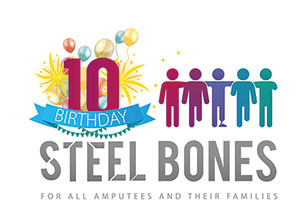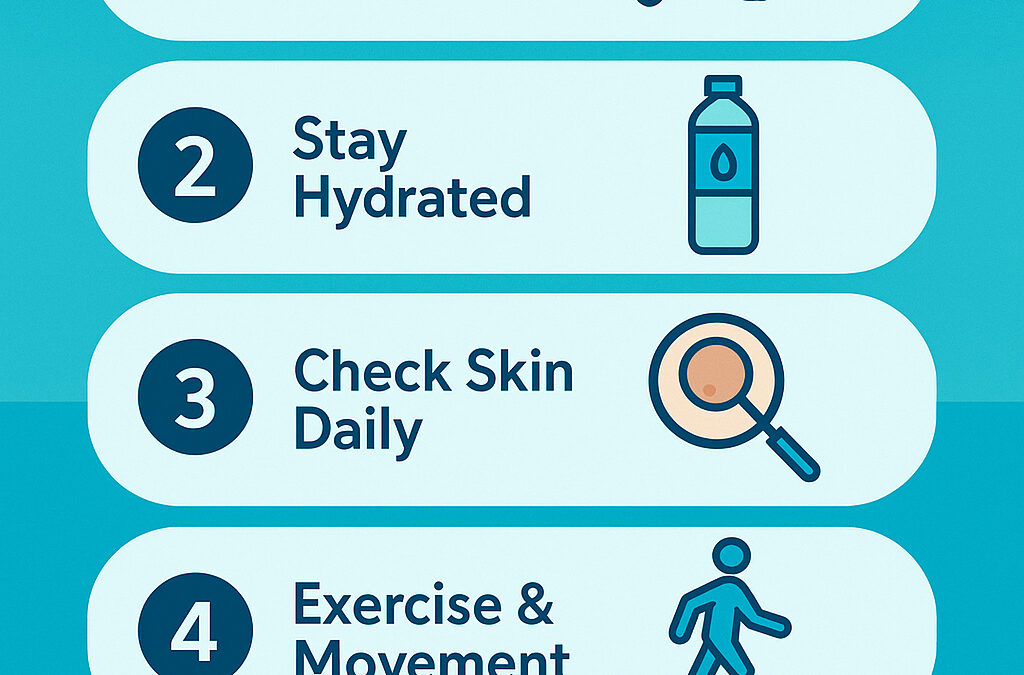Life after amputation involves both physical and emotional adjustments. While prosthetics, rehabilitation, and mobility support are often at the forefront, nutrition and self-care play a powerful role in overall health and wellbeing. Taking care of your body and mind can boost recovery, prevent complications, and improve quality of life.
Here’s a guide to some of the most important aspects of nutrition and self-care for amputees.
Why Nutrition Matters After Amputation
After surgery, your body needs extra energy and nutrients to heal. In the long term, eating well helps:
- Maintain a healthy weight – extra weight can put strain on your residual limb and prosthesis.
- Support skin health – preventing sores, irritation, and infection.
- Boost energy – living with a prosthesis can use more energy, making balanced nutrition essential.
- Strengthen bones and muscles – crucial for balance, mobility, and independence.
Key Nutrients for Amputees
- Protein
Supports wound healing, muscle strength, and recovery.
Sources: lean meat, fish, eggs, beans, lentils, tofu. - Vitamin C & Zinc
Help repair tissue and keep skin healthy.
Sources: citrus fruit, peppers, berries (Vitamin C); nuts, seeds, seafood (Zinc). - Vitamin D & Calcium
Important for bone health and preventing osteoporosis, especially if mobility is reduced.
Sources: fortified foods, dairy, leafy greens, sunlight (Vitamin D). - Omega-3 Fatty Acids
Reduce inflammation and support joint health.
Sources: oily fish, flaxseeds, walnuts. - Hydration
Staying well-hydrated keeps skin and muscles healthy, which is vital when using a prosthesis.
Self-Care Practices for Amputees
- Daily Skin Checks
Inspect your residual limb for redness, sores, or irritation. Early detection prevents bigger issues. - Good Prosthetic Hygiene
Clean sockets, liners, and prostheses regularly to reduce infection risk and improve comfort. - Exercise & Movement
Regular activity maintains strength, flexibility, and circulation. This doesn’t need to mean the gym — walking, swimming, or tailored exercises from your physiotherapist are all great options. - Mental Health & Emotional Support
Amputation can bring feelings of grief, anxiety, or low mood. Talking to a counsellor, joining a peer group, or connecting with organisations like Steel Bones can provide vital support. - Rest & Recovery
Sleep is one of the most underrated forms of self-care. Quality rest helps the body repair and boosts mood.
Building Healthy Routines
Consistency is key. Try to:
- Plan balanced meals and snacks.
- Keep hydrated throughout the day.
- Schedule regular prosthetist or GP check-ups.
- Make time for enjoyable activities and social connections.
Final Thoughts
Nutrition and self-care are just as important as prosthetic technology or medical care. A healthy, balanced lifestyle can improve comfort, reduce complications, and give amputees the energy to thrive.
At Steel Bones, we’re here to support not only amputees but also their families with resources, events, and peer support.
Together, we’re stronger.


Recent Comments